Discover whistlekick Martial Arts Radio
whistlekick Martial Arts Radio

whistlekick Martial Arts Radio
Author: whistlekick Martial Arts Radio
Subscribed: 714Played: 29,817Subscribe
Share
© All episodes are copyright Whistlekick, LLC, All Rights Reserved.
Description
whistlekick Martial Arts Radio is the only bi-weekly podcast devoted to the traditional martial arts in all forms. We dig into what makes martial artists tick, their history and experience… and tell some great stories in the process. It’s all about bringing martial artists together and learning from one another. Our guests include the famous and the unknown, from taekwondo, karate, hapkido, capoeira, kungfu, FMA, HEMA and everything else you can imagine.
1130 Episodes
Reverse
EDITORS NOTE: There was an issue with the audio. We cleaned it up as best we could and felt that, even though it’s not the best audio, the content and message given during their interviews warranted being released, even if with not so stellar audio. We thank you for understanding. SUMMARY This part 1 conversation was recorded at the 2025 Uechi-Con, in Manchester NH and was with students that tested for their Master level ranks within their organization. They explore the profound impact of martial arts training on individuals' lives, emphasizing the sense of community, personal growth, and the importance of maintaining a lifelong commitment to learning. The participants share their experiences of how martial arts has provided them with a constant in their lives, helped them navigate challenges, and fostered a supportive environment for improvement and camaraderie. The discussion also touches on the themes of addiction, intent, and the generational transfer of knowledge within the martial arts community. Guests include: Michael Demers (Kudan), Neil Stone (Kudan), Freddy Cicerchia (Kudan), Robert Beal Jr. (Kudan), Jen Patashnick (Hachidan), Matthew Saindon (Hachidan), and John Mahaney (Hachidan). TAKEAWAYS Life is unpredictable, and martial arts provides a constant. The dojo atmosphere fosters community and personal growth. Training helps clear the mind and relieve stress. Martial arts can be seen as a healthy addiction. The skills learned in the dojo translate to everyday life. Intent in training impacts behavior outside the dojo. Prioritizing training is essential amidst life's challenges. Learning is a lifelong journey, both in and out of martial arts. Mistakes are part of the learning process. Generational knowledge transfer enriches the martial arts community.
SUMMARY In this engaging conversation, Jeremy Lesniak is joined by Sensei Derek Wayne Johnson who explores the rich landscape of martial arts, touching on the cultural significance of Texas as a martial arts hub, the evolution of training styles, and the profound impact of instructors on students' lives. They delve into the philosophy of martial arts as a language, the connection between martial arts and film, and the legacy of iconic figures like Mr. Miyagi. The discussion also highlights the importance of community and the future of martial arts in a modern context, emphasizing the need for practical application alongside theoretical knowledge. TAKEAWAYS Texas is a significant hub for martial arts. Martial arts can be viewed as a language with accents. Training in different styles enriches martial arts experience. The role of a sensei is crucial in a student's journey. Martial arts can profoundly impact personal development. The connection between martial arts and film is deep and meaningful. Instructors often embody the spirit of martial arts. The evolution of martial arts reflects changes in society. Community support is vital for martial arts schools. Practical application of techniques is essential for mastery.
In this episode of Whistlekick Martial Arts Radio, host Jeremy Lesniak welcomes back three past guests, Shihan Grant Campbell (#124), Shihan Christine Bannon-Rodrigues (#26) and Master Chris Rappold (#950), to discuss the evolution of martial arts, the impact of technology on training, and the importance of relationships in coaching. The conversation explores how communication and collaboration have changed within the martial arts community, the role of technology in enhancing training, and the significance of fostering trust and overcoming self-doubt among athletes. The guests share their insights on the current state of martial arts and how it has transformed over the years, emphasizing the need for adaptability and support in the journey of martial artists. TAKEAWAYS The level of competition in martial arts has significantly increased due to technology. Communication among martial artists has improved, fostering collaboration. Technology has changed the way martial artists train and learn. Building relationships with students is crucial for effective coaching. Self-doubt is a common experience among athletes, regardless of their level. Surrounding oneself with supportive individuals can enhance performance. The importance of trust between coaches and athletes cannot be overstated. Online training has become a valuable tool for martial artists. Maintaining original intentions can help overcome challenges in training. The evolution of martial arts requires adaptability and openness to new methods.
SUMMARY In this conversation, Sensei Christian Wedewardt discusses with Jeremy the evolution of karate, focusing on his journey from competition to practical karate. They explore the influence of mentorship, the importance of kihon, and the role of motivation in martial arts. Sensei Wedewardt shares his teaching philosophy, the impact of seminars, and the significance of tradition in karate. The conversation also touches on the importance of teaching children and building character through martial arts, concluding with a call to make karate attractive for future generations. TAKEAWAYS Sensei Wedewardt emphasizes the importance of mentorship in martial arts. Kihon should be viewed as a tool for practical application. The transition from competition to practical karate can be transformative. Motivation and success are key components in teaching martial arts. Teaching philosophy should focus on principles rather than imitation. Seminars can create light bulb moments for participants. Practical karate aims to make techniques applicable in real-life situations. Children's karate should focus on personal growth and teamwork. Tradition in karate should evolve to remain relevant. Karate can serve as a management and leadership program for youth.
SUMMARY In this episode of Whistlekick Martial Arts Radio, Jeremy Lesniak and Andrew Adams discuss the issue of martial artists claiming to represent 'Team USA' without proper authority. They explore the implications of such claims, the importance of honesty in representation, and the need for clarity regarding the structure and authority of martial arts teams. The conversation emphasizes the value of integrity within the martial arts community and the potential negative impact of misrepresentation. TAKEAWAYS • The misuse of 'Team USA' claims can mislead the public. • Honesty in team representation is crucial for integrity. • Martial artists should clarify their authority and scope. • Misrepresentation can harm the reputation of martial arts. • The desire for recognition can lead to inflated claims. • It's important to acknowledge the hard work of martial artists. • Teams should include their organizational name in titles. • Open tryouts across states lend credibility to teams. • The martial arts community should strive for transparency. • Misleading claims can create division within the martial arts community.
SUMMARY In this conversation, Mr. Paul Coffey shares his extensive journey in martial arts, emphasizing the importance of being a well-rounded martial artist rather than just focusing on one style. He discusses his experiences with teaching, particularly in non-traditional environments such as rehab facilities and shelters, and how his past experiences have shaped his teaching philosophy. Mr. Coffey advocates for a philosophy in motion approach, where the focus is on personal growth and helping others overcome their struggles. He also highlights the significance of continuous learning and adapting teaching methods to meet the needs of diverse students. TAKEAWAYS Mr. Coffey was more interested in being a martial artist and less interested in being a Kempo artist. Mr. Coffey has conquered demons and hopes he can also teach other people how to conquer demons. He teaches philosophy in motion, and the student brings the philosophy. Your past does not define your present or your future. There is a martial art for everybody, and if you don't like it, give yourself permission to leave. Learning martial arts is the best and the worst thing that can happen to you. He wants to help those people who are disenfranchised. He wants to focus on soft techniques to make them effective.
SUMMARY In this episode of Whistlekick Martial Arts Radio, hosts Jeremy Lesniak and Andrew Adams discuss the pros and cons of various types of martial arts training equipment, including kicking shields, focus mitts, paddles, and more. The conversation also touches on the significance of safety, technique, and the psychological aspects of training with different equipment. The hosts conclude by suggesting future discussions on innovative training tools and techniques. TAKEAWAYS Training tools are common for martial arts practice. Using a variety of equipment can benefit students' training. Kicking shields allow for powerful strikes but can be cumbersome. Board breaking can boost confidence but carries injury risks. Focus mitts enhance accuracy and technique during drills. Heavy bags provide a realistic striking experience. Upright bags offer maneuverability for dynamic training. Cleaning training equipment is crucial for hygiene. Innovative tools can enhance training effectiveness. This episode is sponsored by Martialytics. Spend less time running your martial arts business and more time doing the martial arts parts of your business! Martialytics provides easy to use and versatile tools for well-established school as well as ones just starting out. If you sign up through us, they will DOUBLE your free trial to 60 days! Check out more at www.whistlekickmartialartsradio.com/partners
SUMMARY In this episode, Mark Ceaser shares his extensive journey through martial arts, detailing his beginnings, transitions between styles, and the cultural differences he has encountered. He emphasizes the importance of perseverance in overcoming personal challenges, including health issues and the loss of loved ones. Mark also discusses his experiences with weapons training, competition, and the significance of community in martial arts. He concludes with a heartfelt message about the need to preserve traditional martial arts and the importance of personal growth and harmony. TAKEAWAYS Mark Ceaser considers his martial arts instructor a brother. His journey in martial arts began after a life-threatening encounter. Perseverance is key in both martial arts and life. Cultural differences in martial arts training can be eye-opening. Transitioning between martial arts styles requires discipline and focus. Weapons training enhances understanding of martial arts techniques. Competition experiences can be both challenging and rewarding. Mark is being inducted into the Pennsylvania Karate Hall of Fame. The importance of community and knowledge sharing in martial arts. Personal growth and harmony are essential in martial arts practice.
SUMMARY In this episode, Andrew Adams and Craig Wharem engage in a lively discussion about their experiences in martial arts, including missed opportunities for training in Japan, the importance of connections within the martial arts community, and upcoming events. They share personal anecdotes, reflect on their journeys, and discuss the significance of teacher training and personal growth in martial arts. The conversation also touches on unique experiences, such as a memorable encounter with John Cena Sr., and concludes with thoughts on the future of martial arts education and community engagement. TAKEAWAYS Training in Japan requires proper connections and protocols. Bringing a uniform while traveling can lead to unique training opportunities. Personal growth in martial arts often comes from shared experiences. Engaging with other martial artists can happen in unexpected places. Teacher training is essential for developing future leaders in martial arts. Upcoming events can provide valuable learning experiences for instructors. Maintaining connections with notable figures in martial arts can lead to unique opportunities. Balancing work and leisure is important for martial artists. Sharing experiences can enhance the martial arts community.
SUMMARY In this engaging conversation, Sensei Kris Sparks discusses his martial arts journey, discussing the importance of training, consistency, and learning from legends like Bill Wallace and Joe Lewis. He emphasizes the significance of community, discipline, and the willingness to embrace the white belt mindset, showcasing how these elements contribute to personal growth and the evolution of martial arts training. In this conversation, Kris Sparks shares his transformative journey through martial arts, emphasizing the profound impact it has had on his life. He discusses the importance of training over rank, the necessity of meeting students where they are, and how martial arts can help individuals overcome life's challenges. Kris highlights the role of discipline in martial arts and the power of storytelling and legacy in inspiring others. His experiences illustrate the resilience and community found within martial arts, and he expresses a desire to give back to the community that has shaped him. TAKEAWAYS The journey of martial arts is about continuous learning and growth. Consistency in training leads to improvement over time. Learning from experienced martial artists is invaluable. The importance of community in martial arts cannot be overstated. Embracing the white belt mindset allows for personal growth. Discipline and commitment are essential for success in martial arts. Passing the torch and sharing knowledge is crucial for the legacy of martial arts. Training should evolve with the times while maintaining core principles. Finding the right training environment is key to development. He highlights the importance of training over rank in martial arts education. He shares how martial arts helped him overcome significant health challenges. He stresses the importance of storytelling and legacy in inspiring others. Kris encourages a non-quitting spirit in martial arts training. He believes martial arts can teach resilience and strength in facing life's challenges.
SUMMARY In this episode, Andrew Adams and Victor Guarino delve into the nuances of martial arts etiquette, exploring its cultural significance and practical applications. They discuss various aspects of etiquette, including the importance of bowing, the practice of cleaning the dojo, and the expectations surrounding sparring and testing. The conversation highlights how these traditions foster respect, discipline, and a sense of community within martial arts training. TAKEAWAYS Etiquette in martial arts is rooted in cultural traditions. Bowing serves as a sign of respect and acknowledgment. Cleaning the dojo is a way to take ownership and reflect on training. Sparring etiquette emphasizes safety and mutual respect among students. Students should feel empowered to ask questions and seek knowledge. Testing should be a personal decision based on readiness, not instructor pressure. Cultural differences influence how etiquette is perceived and practiced. Mindful cleaning can be a meditative practice for martial artists. Communication and non-verbal cues are essential in a dojo setting. This episode is sponsored by Martialytics. Spend less time running your martial arts business and more time doing the martial arts parts of your business! Martialytics provides easy to use and versatile tools for well-established school as well as ones just starting out. If you sign up through us, they will DOUBLE your free trial to 60 days! Check out more at www.whistlekickmartialartsradio.com/partners
SUMMARY In this conversation, Sensei Christos Papapanos shares his journey in martial arts, highlighting the importance of mentorship, character development, and the philosophy behind martial arts practice. He discusses the impact of his sensei on his life, the significance of overcoming fear, and the balance between teaching and allowing independence in students. Christos emphasizes the interconnectedness of karate and kobudo, the importance of continuous learning, and the expression of movement as a core aspect of martial arts. He also touches on his experience in crafting weapons and the lessons learned through this process. TAKEAWAYS • Sensei Papapanos was inspired by martial arts movies from a young age. • He sought to express himself through movement and martial arts. • Finding a mentor was crucial in his martial arts journey. • A good sensei impacts not just martial arts skills but life lessons. • Character and ethics are essential in choosing a martial arts instructor. • Martial arts is about more than fighting; it's about personal growth. • Overcoming fear is a significant part of martial arts training. • Teaching should balance guidance with allowing students to find their own way. • Kobudo training enhances karate skills and vice versa. • Continuous learning and respect for tradition are vital in martial arts.
SUMMARY In this episode, Andrew Adams, Nick Taber, and Dennis Campo discuss the essential role of teachers in martial arts and the importance of continuous learning. They explore how martial arts evolve over time, the mindset of being a perpetual student, and the need for instructors to seek guidance from others. The conversation highlights the value of community and mentorship in martial arts, as well as the initiatives by Whistlekick to support teacher training and development. TAKEAWAYS Martial arts teachers need teachers to continue their growth. The cycle of learning never ends; instructors must evolve. Even masters should maintain a beginner's mindset. Continuous learning is essential for personal and professional development. Martial arts evolve over time, influenced by various factors. Learning from students is as important as teaching them. Whistlekick offers valuable resources for teacher training. Instructors should seek external guidance to enhance their skills. The mindset of a perpetual student fosters growth and improvement.
SUMMARY In this conversation, Jeremy Lesniak and Jadi Tention explore the multifaceted world of martial arts, focusing on the balance between competition, teaching, and personal growth. They discuss the importance of understanding violence, the role of instructors, and the need for martial artists to evolve and adapt. The conversation emphasizes the significance of community, passion, and the responsibility of instructors to foster an environment where students can thrive and express themselves. TAKEAWAYS • Martial arts should blend different styles for better understanding. • Point fighting has its own unique value despite criticism. • Understanding violence is essential for martial artists. • Self-defense should be practical and applicable in real situations. • Instructors must balance teaching with being students themselves. • The community aspect of martial arts is vital for growth. • Passion for martial arts drives success in teaching. • Students should be encouraged to express themselves and evolve. • Martial arts training is a journey of continuous learning and unlearning.
SUMMARY In this episode, Andrew Adams and Dennis Campo discuss the essential factors to consider when searching for the right martial arts school. They explore the importance of understanding personal goals, the variety of martial arts styles available, and the significance of the school environment and instructor philosophy. The conversation emphasizes the need for prospective students to ask probing questions and to take the time to find a school that aligns with their individual needs and preferences. TAKEAWAYS Finding the right martial arts school requires understanding personal goals. Different martial arts styles cater to different interests and needs. Probing questions help clarify what a student is looking for. Location and convenience are crucial for consistent training. It's important to feel welcomed and supported in a martial arts school. Students should observe classes before making a decision. Instructors should be approachable and open to questions. Experience level influences the type of questions asked. Preconceived notions about martial arts styles can limit options. The right school is one that aligns with the student's expectations and makes them happy.
SUMMARY In this engaging conversation, Master Simon Rhee shares his experiences in martial arts, from his early days of training and competition to his involvement in iconic films like 'Best of the Best.' He discusses the evolution of martial arts training, the impact of competition, and the influence of martial arts movies on culture. Master Rhee emphasizes the importance of respect, humility, and continuous learning in martial arts, while also reflecting on the challenges of fame and mental health. The conversation highlights the legacy of martial arts icons and the significance of teaching the next generation. TAKEAWAYS Connections in martial arts can span decades and create lasting memories. Motivation in training can come from competition and personal goals. The evolution of martial arts training reflects changes in culture and competition. Martial arts movies have significantly influenced public perception and interest in martial arts. The legacy of films like 'Best of the Best' continues to inspire new generations. Training the next generation requires dedication and a focus on technique. Mental health challenges are prevalent in the martial arts community, especially among those in the spotlight. The Hollywood environment can shape martial arts aspirations and training styles. Respect and humility are fundamental values in martial arts that transcend rank.
SUMMARY In this episode, Jeremy Lesniak and Andrew Adams discuss undervalued self-defense skills, emphasizing the importance of de-escalation, awareness, and risk mitigation. They explore how traditional self-defense training often overlooks these critical skills, focusing instead on physical techniques. The conversation highlights the need for martial arts schools to incorporate soft skills into their curriculum to better prepare students for real-life situations. The hosts share personal anecdotes and insights on how to assess and evaluate potentially dangerous situations, ultimately advocating for a more holistic approach to self-defense training. TAKEAWAYS Self-defense is more than just physical techniques. De-escalation is a crucial skill that can be learned. Awareness of surroundings can mitigate risks. Soft skills are often overlooked in self-defense training. It's important to assess situations before they escalate. Nobody wins a fight; prevention is key. You can influence situations but not control others' actions. Teaching self-defense should include communication skills. Martial arts schools should incorporate soft skills into their curriculum. This episode is sponsored by Martialytics. Spend less time running your martial arts business and more time doing the martial arts parts of your business! Martialytics provides easy to use and versatile tools for well-established school as well as ones just starting out. If you sign up through us, they will DOUBLE your free trial to 60 days! Check out more at www.whistlekickmartialartsradio.com/partners
SUMMARY In this episode of Whistlekick Martial Arts Radio, host Andrew Adams speaks with Viet Le, a martial artist and neurologist, about his journey through various martial arts styles, including Taekwondo and Northern Shaolin. Viet shares insights on the cultural and philosophical aspects of martial arts, his experiences training in China and Taiwan, and how his medical background informs his martial arts practice. The conversation also touches on the importance of competition, the future of martial arts training, and the intersection of martial arts and medicine. TAKEAWAYS Viet Le started training in martial arts at a young age due to his father's influence. He achieved a black belt in Taekwondo at just 11 years old. Viet transitioned back to Northern Shaolin after a break from martial arts. Cultural and philosophical aspects of martial arts are now more important to Viet than competition. Training in China and Taiwan provided Viet with new perspectives on martial arts. Viet emphasizes the importance of transparency in martial arts teaching. He believes that martial arts should bring joy and happiness to practitioners. Viet has trained in various martial arts styles beyond just kung fu. He advocates for basic first aid skills for martial artists. Viet aims to pass down the art he has learned to future students.
SUMMARY Another episode of “Martial Arts Word Association” where Andrew gives Jeremy a random word that he could connect to martial arts. All of today’s words are pet themed! TAKEAWAYS Rules in martial arts serve as guidance for students. Understanding boundaries enhances skill progression in training. Dog parks are akin to martial arts events for socializing and learning. Veterinarians can be likened to instructors providing guidance. Proper hygiene practices are essential for a healthy training culture. Crates can represent safety and structure in training. Training spaces should be welcoming and supportive. This episode is sponsored by Martialytics. Spend less time running your martial arts business and more time doing the martial arts parts of your business! Martialytics provides easy to use and versatile tools for well-established school as well as ones just starting out. If you sign up through us, they will DOUBLE your free trial to 60 days! Check out more at www.whistlekickmartialartsradio.com/partners
SUMMARY In this episode of Whistlekick Martial Arts Radio, host Andrew Adams speaks with Ken Knight about his journey in martial arts, the influence of media on his passion, and the importance of finding a good instructor. They discuss the evolution of teaching and learning in martial arts, the significance of adaptability as one ages, and the value of sharing knowledge within the community. Ken also introduces his passion project, Kenfu TV, where he shares his martial arts experiences and insights. The conversation emphasizes the personal journey of martial arts and the legacy of instructors. TAKEAWAYS Ken's early interest in martial arts was sparked by media like Power Rangers and Ninja Turtles. The importance of finding a good instructor and dojo for martial arts training. Training in martial arts is not just about physical skills but also about understanding principles. Ken emphasizes the need for adaptability in martial arts as one ages and faces physical challenges. Teaching is a crucial part of martial arts, and everyone should have the opportunity to lead. Kenfu TV serves as a platform for Ken to share his martial arts journey and knowledge. The evolution of martial arts instruction is influenced by the instructor's experiences and growth. Sharing knowledge and experiences in martial arts can greatly benefit the community. Ken's philosophy is that martial arts should be a personal journey, not just a replication of the instructor's style. The importance of recognizing the changes in instructors over time and adapting training accordingly. To connect with Ken Knight: Ken@kenfu.tv


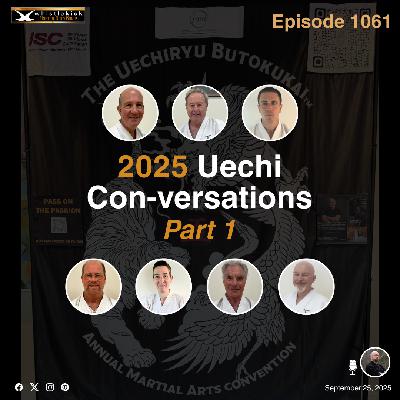
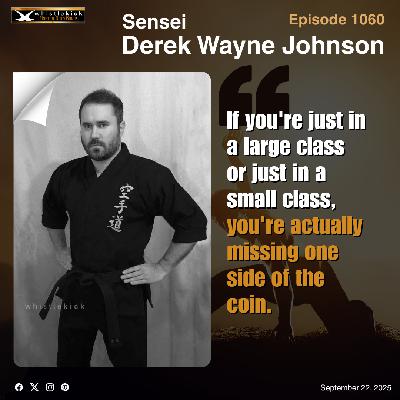
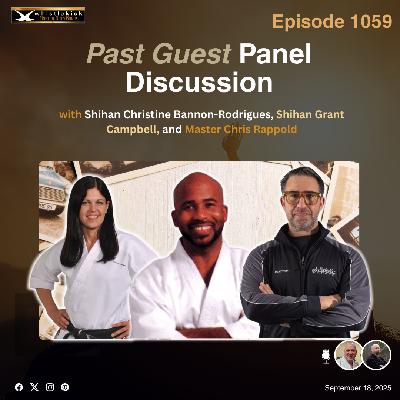
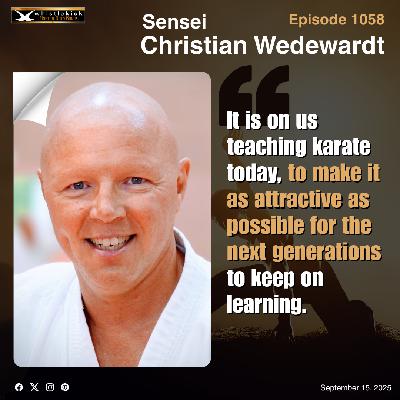
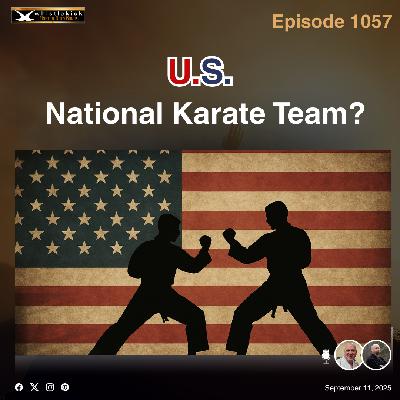
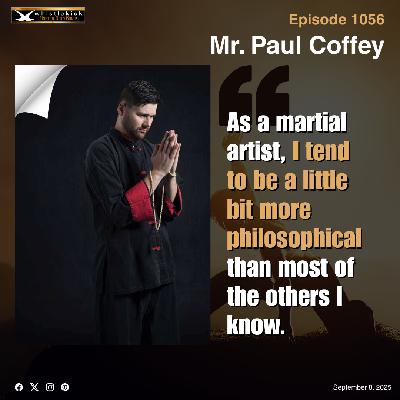
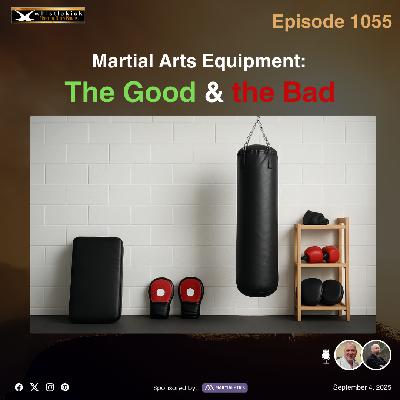
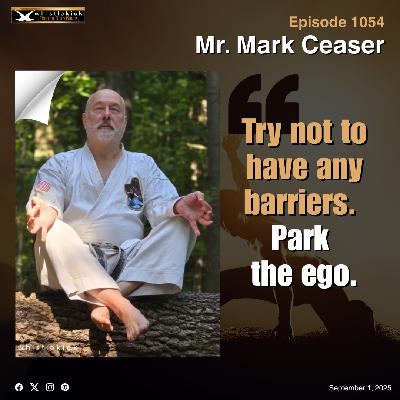
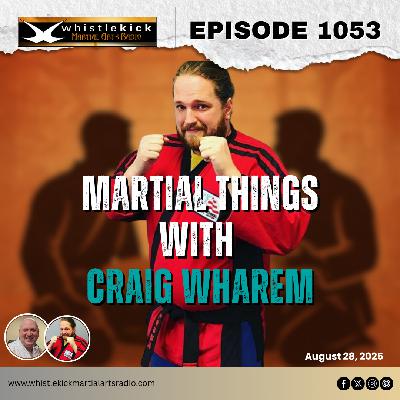
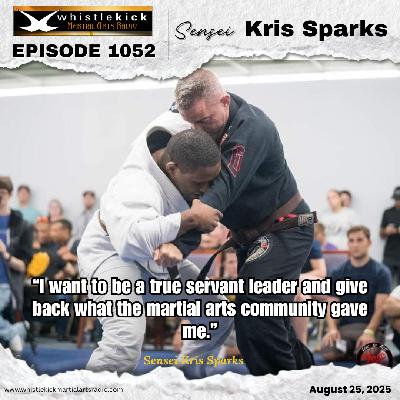
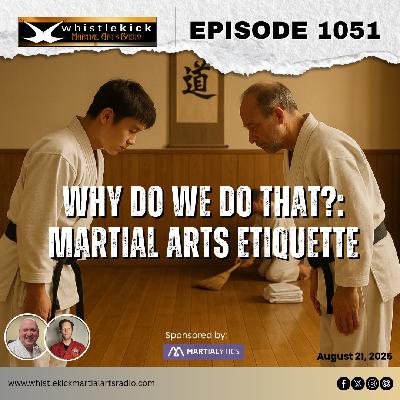
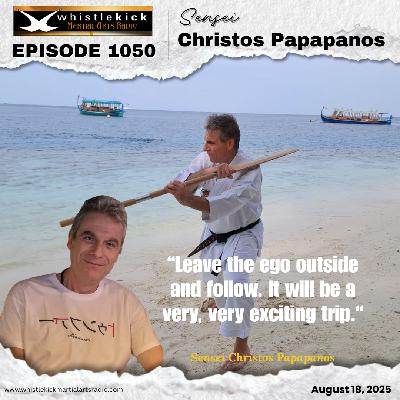
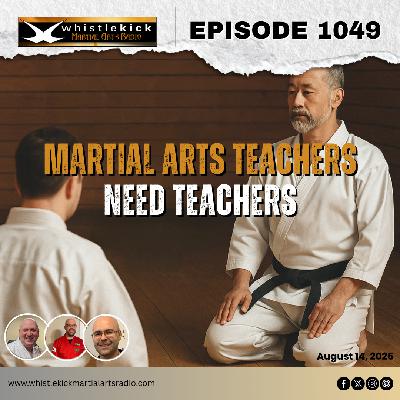
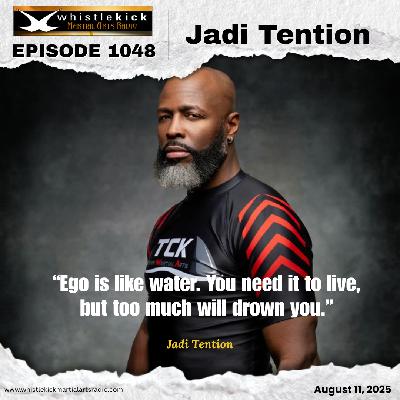
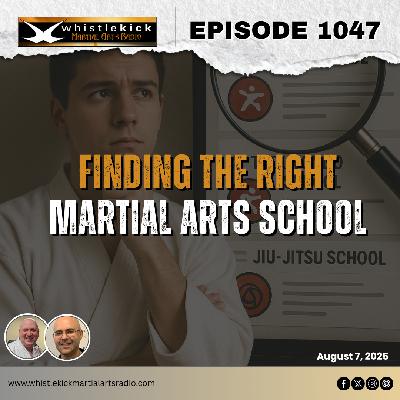
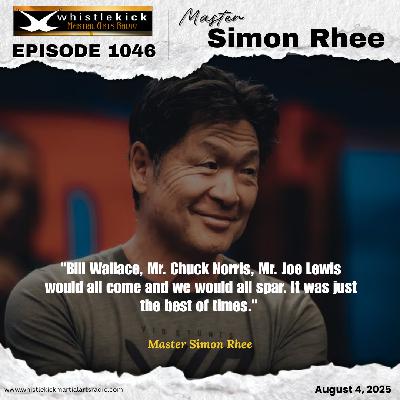
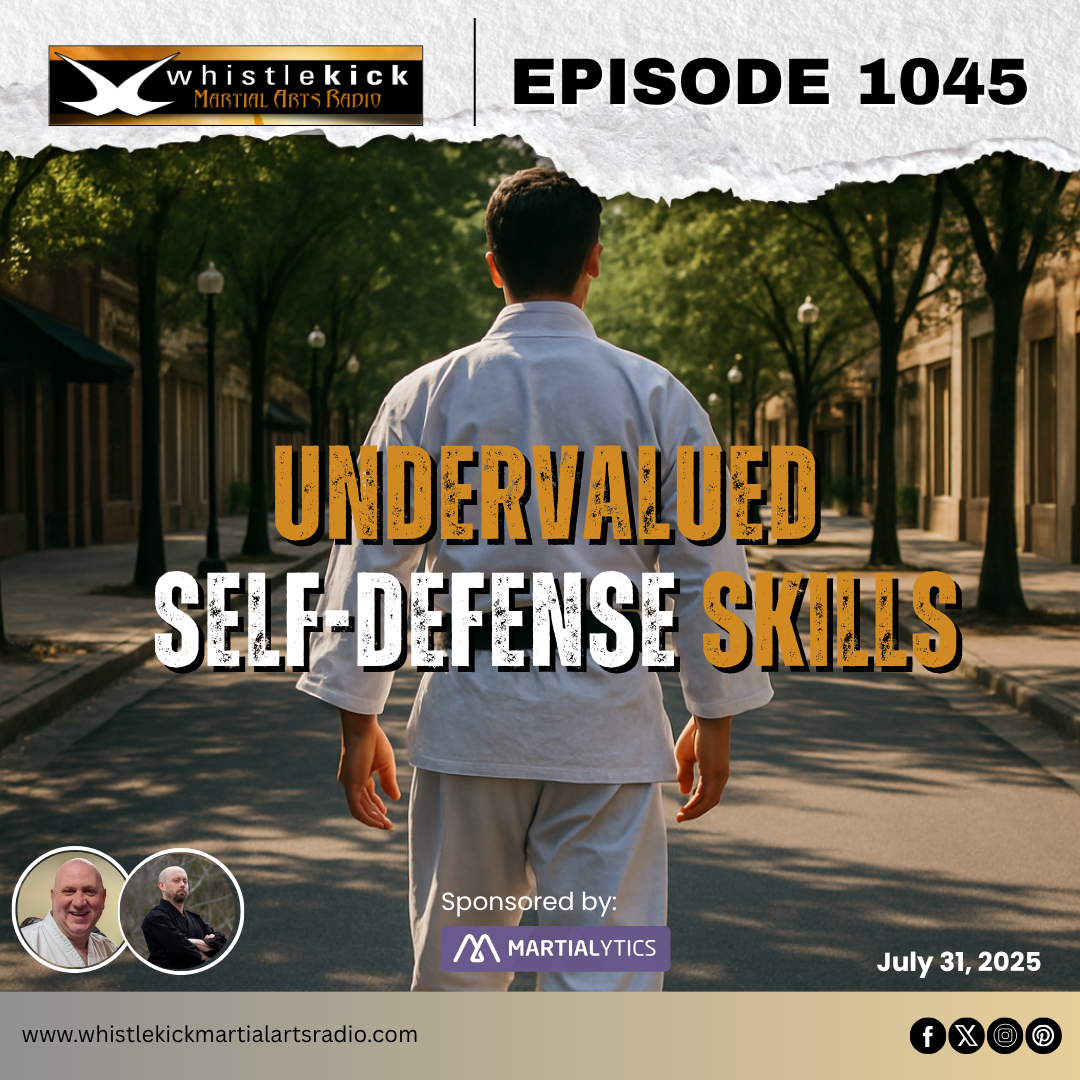
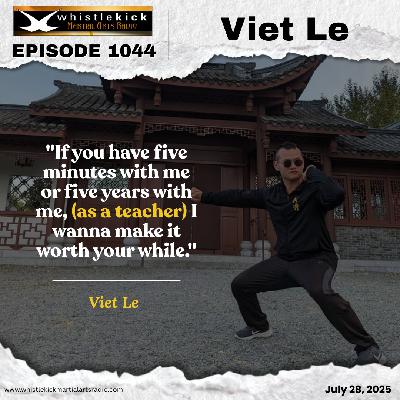

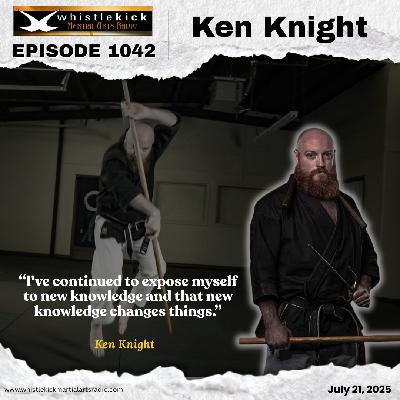



love everything your doing with the arts brother! But on a real note why with all the brands are there no tall sizes?! I'm a 6'9" practitioner, and wear between a 3xlt to a 4xlt but no marital arts brand has any! including yours help us bigger ones out!
I really enjoyed this episode as I am big MMA fan who does Taekwon-Do. I think your view of UFC fighters is slightly jaundiced however, despite my sharing your opinion on McGregor's antics (I'm also from Ireland). Dustin Poirier, his last opponent, is a complete contrast who has his own charitable foundation. The vast majority of UFC fighters are also very respectful post-fight but the WWE like behaviour of people like McGregor and Colby Covington drags them all down.
Dillman is a snake oil salesman the martial arts world is better without his BS.
Great episode!